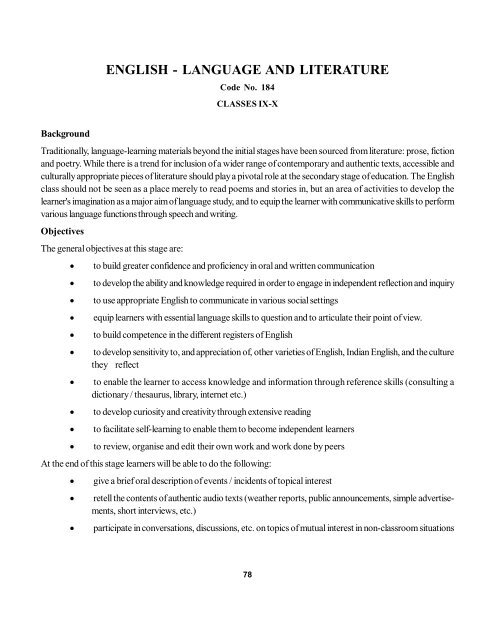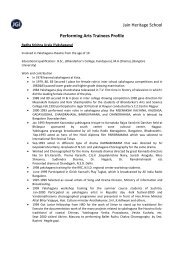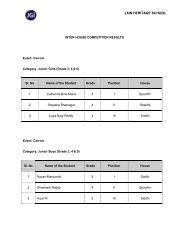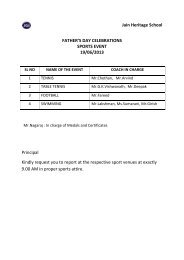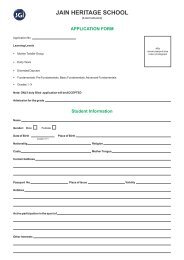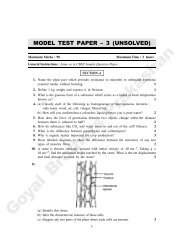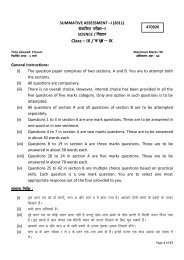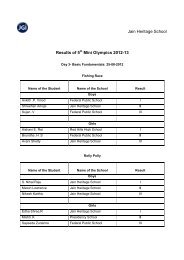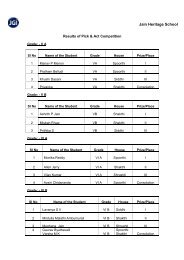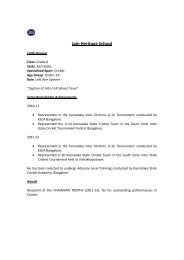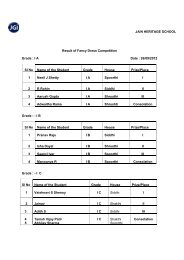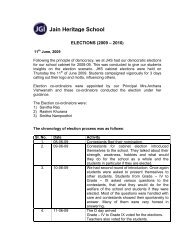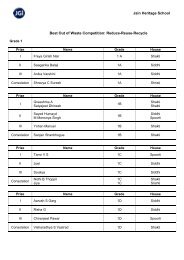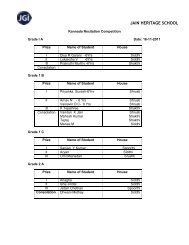Secondary School Curriculum 2012 - Central Board of Secondary ...
Secondary School Curriculum 2012 - Central Board of Secondary ...
Secondary School Curriculum 2012 - Central Board of Secondary ...
You also want an ePaper? Increase the reach of your titles
YUMPU automatically turns print PDFs into web optimized ePapers that Google loves.
ENGLISH - LANGUAGE AND LITERATURE<br />
Code No. 184<br />
CLASSES IX-X<br />
Background<br />
Traditionally, language-learning materials beyond the initial stages have been sourced from literature: prose, fiction<br />
and poetry. While there is a trend for inclusion <strong>of</strong> a wider range <strong>of</strong> contemporary and authentic texts, accessible and<br />
culturally appropriate pieces <strong>of</strong> literature should play a pivotal role at the secondary stage <strong>of</strong> education. The English<br />
class should not be seen as a place merely to read poems and stories in, but an area <strong>of</strong> activities to develop the<br />
learner's imagination as a major aim <strong>of</strong> language study, and to equip the learner with communicative skills to perform<br />
various language functions through speech and writing.<br />
Objectives<br />
The general objectives at this stage are:<br />
• to build greater confidence and pr<strong>of</strong>iciency in oral and written communication<br />
• to develop the ability and knowledge required in order to engage in independent reflection and inquiry<br />
• to use appropriate English to communicate in various social settings<br />
• equip learners with essential language skills to question and to articulate their point <strong>of</strong> view.<br />
• to build competence in the different registers <strong>of</strong> English<br />
• to develop sensitivity to, and appreciation <strong>of</strong>, other varieties <strong>of</strong> English, Indian English, and the culture<br />
they reflect<br />
• to enable the learner to access knowledge and information through reference skills (consulting a<br />
dictionary / thesaurus, library, internet etc.)<br />
• to develop curiosity and creativity through extensive reading<br />
• to facilitate self-learning to enable them to become independent learners<br />
• to review, organise and edit their own work and work done by peers<br />
At the end <strong>of</strong> this stage learners will be able to do the following:<br />
• give a brief oral description <strong>of</strong> events / incidents <strong>of</strong> topical interest<br />
• retell the contents <strong>of</strong> authentic audio texts (weather reports, public announcements, simple advertisements,<br />
short interviews, etc.)<br />
• participate in conversations, discussions, etc. on topics <strong>of</strong> mutual interest in non-classroom situations<br />
78


